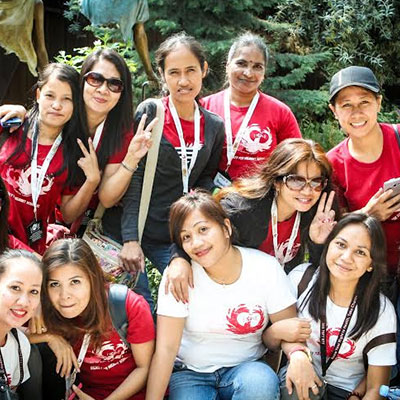
TESTIMONIALS
Read the stories of the people whose lives we touch, and who inspire us in return
These were Rahman Ataur Mohammad’s words when he spoke of the work accident that left him with third degree burns on 73 per cent of his body. Rahman, a 23-year old-Bangladeshi ex-landscaper, now wears a cap and a handkerchief to cover his scarred face, and spends his days waiting for things to happen. In June 2016, when Rahman still had a job and a pair of functioning hands, he was tasked to clean a water tank in a dark underground room. Rahman headed underground with a halogen lamp, not realising that gas had been accumulating in the room – which could be ignited by the merest flick of a switch. The few seconds after he switched the halogen lamp on changed the course of his life forever.
After Rahman regained consciousness, he had to come to terms with his new reality: chunks of skin were missing from his limbs, his bones were visible from under layers of his flesh in some areas, and his voice no longer sounded like his. He spent the next six months at Singapore General Hospital (SGH) where he laid in bed, wrapped in bandages, strange tubes running down his throat, and wires inserted through his fingers.
“Two, three minutes and my life changed. Now, it’s about trying to live a normal life.”
Rahman Ataur Mohammad
After months waiting to “heal”, Rahman was finally discharged from hospital. He could speak again, but his voice seemed foreign to him. Balling his hands into fists was a huge effort. He no longer had finger nails.
The co-workers he used to speak so freely with now hardly interact with him and the family that Rahman loves so dearly has not seen him since the accident, and knows little about what actually happened.
The 23-year-old man, against all odds, chose to look on the “bright side of things”. Rahman loves talking about his siblings, as well as his plans to support his young sister’s high school education (something he never got to experience himself). Before he left Singapore in 2018, he shared that he wanted to pick up IT skills, improve his English, and start a cow farm (“like Australia and New Zealand’s standards”) when he returned to his village in Bangladesh.
Rahman’s Story: Life After the Incident
In this video, Rahman shares more about his life after returning to Bangladesh. When his compensation case finally concluded in 2018 after 2 years, he used part of it to set up a school in his village to help underprivileged children as well as a farm for his family. It has been 7 years since the accident. How has life changed for him?
Watch on to find out more.
Regielyn Lopez
“Good morning, HOME” her chirpy voice ringing through the small office space as she attended to the flurry of calls. For almost a year, Regielyn Lopez (centre, front row) was volunteering at our women’s help desk, helping out with reception duties and attending to queries. “Volunteering at the helpdesk gives me something meaningful to do. I’ve picked up new skills, learned about domestic worker rights and even helped advise domestic workers who came to seek assistance. It feels good helping my fellow domestic workers in small ways,” says Regielyn.
Regielyn finally went back to the Philippines after waiting for a year for her case to be settled. Her bubbly demeanour belies her struggles in life. The 33-year-old single mother of two left her children in her mother’s care in Cagayan Valley, Luzon (about half a day’s travel by bus from Manila) three years ago to work in Singapore as a domestic worker. Before that, she worked as a cashier in Manila, earning S$200 a month which was barely enough to support her family. Her salary in Singapore was $500 a month, but she went without income for the first six months as her wages were deducted for her agent fees.
Working hard to support her family was her top priority, never mind that her former employer was “strict and fussy”. “I got scolded sometimes but I didn’t let it bother me. I just felt my ma’am didn’t really trust me,” she recalls. “I was only allowed to use my handphone on Sundays when I had my day off and after 10pm on weekdays, which would be really late by that time to call my family.” Her hours were long (she woke up by 5.30am and stopped work around 10pm) and her daily duties included cleaning and taking care of her employer’s two young kids. Things turned sour one day when her employer found out she had bought another mobile for herself. Her employer got livid and started hitting Regielyn with the phone. “I was in a state of shock. I didn’t expect her to hit me at all. I remember just crying,” she says. “Even my mom has never laid a finger on me.”
Regielyn decided she couldn’t work for her employer any more and ran away to HOME for assistance and shelter. “I was scared and really timid when I first came to HOME. Over time, I learned new things and started to be more confident of myself.” Regielyn wants to come back to Singapore again. “I don’t have a choice. I need to work hard because of my two children,” she says, choking on her tears. “I want them to complete school and get good jobs. All my hopes and dreams are on them.”
“It feels good helping my fellow domestic workers in small ways.”


